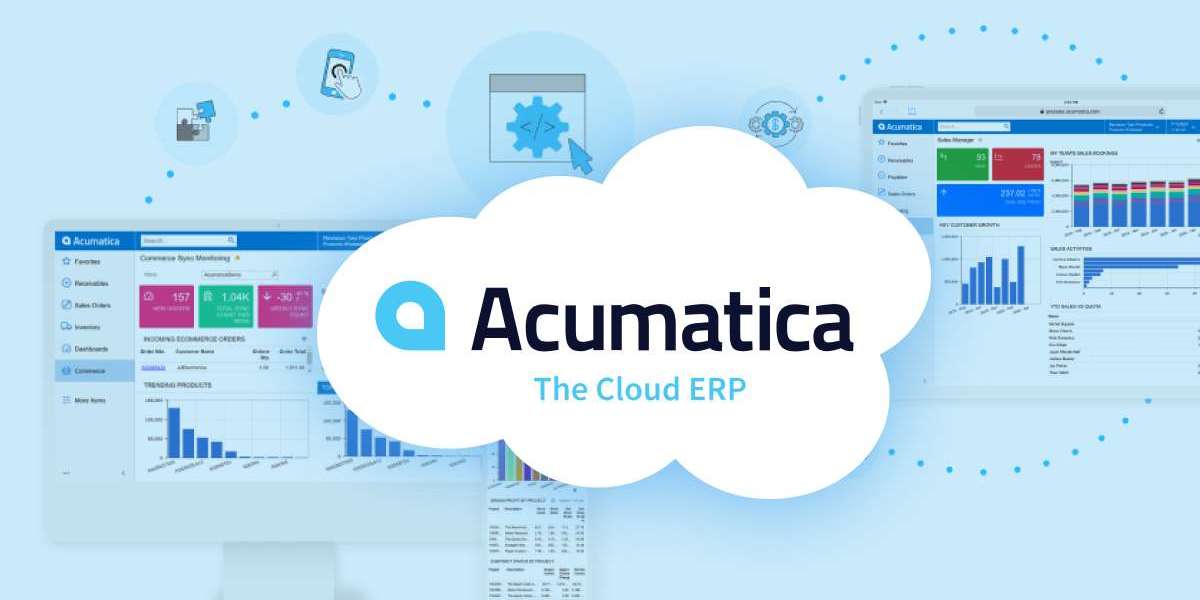Enterprise Resource Planning (ERP) systems are essential for businesses aiming to streamline operations, improve productivity, and support growth. Among the leading ERP solutions today are Acumatica vs NetSuite both robust platforms, each offering powerful features designed for growing businesses. But how do you choose between them?
In this post, we’ll break down the core differences, strengths, and use cases of Acumatica and NetSuite to help you make an informed decision based on your company’s needs.
What Is ERP and Why It Matters
ERP systems integrate core business processes such as finance, inventory, CRM, HR, and project management into a single system. This unified approach enables better decision-making, increased operational efficiency, and real-time data visibility.
Whether you're a mid-size enterprise or a fast-scaling startup, choosing the right ERP system can significantly impact your bottom line.
Acumatica: An Overview
Acumatica is a modern cloud-based ERP designed for small to mid-sized businesses. It’s known for its flexibility, open architecture, and user-friendly licensing model.
Key Features:
- Cloud-native platform with open API for integrations
- Modular structure: Financials, Distribution, Manufacturing, Project Accounting, Construction, etc.
- Unlimited users at no extra cost
- Mobile-friendly with browser-based access
- Real-time dashboards and reporting
Best For:
- Businesses needing customizable workflows
- Companies with a mix of field, warehouse, and office operations
- Organizations that want to avoid per-user license costs
NetSuite: An Overview
NetSuite, owned by Oracle, is one of the most widely used cloud ERP solutions globally. It’s ideal for businesses with complex needs and has a long-standing reputation in the ERP space.
Key Features:
- Comprehensive suite covering ERP, CRM, eCommerce, and HR
- Strong financial management and reporting tools
- Highly scalable for larger enterprises or fast-growing companies
- Industry-specific modules for retail, manufacturing, software, etc.
- Global support with multi-currency and multi-entity features
Best For:
- Medium to large enterprises
- International companies with complex financials
- Businesses looking for an all-in-one solution with robust compliance tools
Pricing Considerations
Acumatica uses a consumption-based pricing model, which means you pay based on the resources you use, not the number of users. This is ideal for businesses with large teams but relatively straightforward operations.
NetSuite, on the other hand, uses a per-user subscription pricing model, which can become costly as your team grows. However, the breadth of features may justify the cost for larger organizations with more complex needs.
Pros and Cons
Acumatica Pros:
- Cost-effective for teams with many users
- Highly customizable and modular
- User-friendly interface
Acumatica Cons:
- May lack some advanced features compared to NetSuite
- Smaller global footprint
NetSuite Pros:
- Comprehensive suite with deep functionality
- Excellent for global operations
- Backed by Oracle’s infrastructure
NetSuite Cons:
- Can be expensive for small businesses
- Customization may require technical expertise
How to Choose the Right ERP for Your Business
Ask yourself the following:
- How complex are your current and future business needs?
- Do you have a large team or expect to grow quickly?
- Are international operations or multi-entity management important?
- What’s your budget for software and support?
- Do you need a highly customizable platform or a more standardized solution?
If you need a flexible, cost-effective ERP with room to grow and prefer full control over your configuration, Acumatica may be the better choice.
If you're running a large or global business with complex financials and need a proven, feature-rich system, NetSuite is likely the better fit.
Final Thoughts
Choosing between Acumatica and NetSuite comes down to understanding your business goals, technical requirements, and growth plans. Both platforms are strong contenders, and the best choice will depend on your specific use case.
Consider speaking with ERP consultants, running demos, and involving key stakeholders before making a final decision. With the right ERP in place, your business will be better equipped to scale, adapt, and thrive in the digital age.






